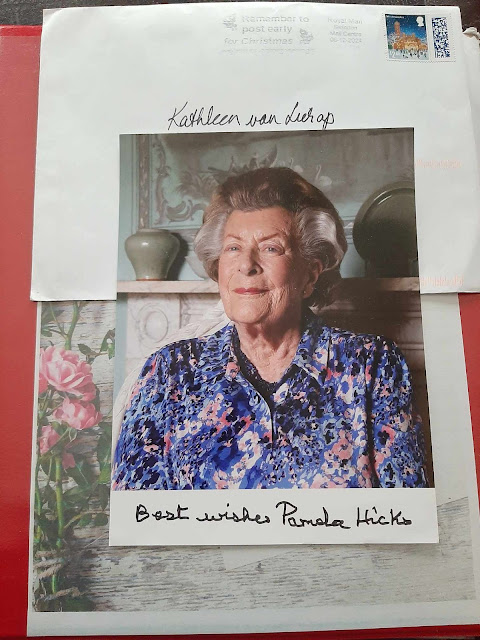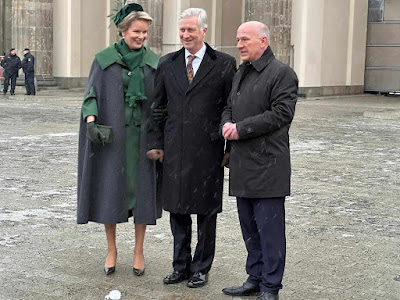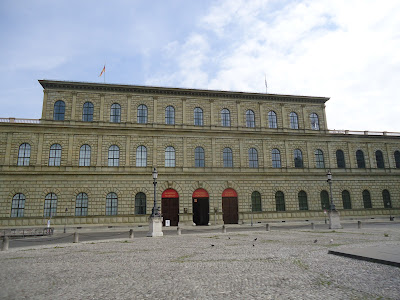A card from Lady Pamela Hicks

In December 2024, I received a special royal post card from the United Kingdom. It was a postcard from Lady Pamela Hicks. But who is she actually? How is she related to the Royal Family? Who is Lady Pamela Hicks? Lady Pamela Carmen Louis Hicks, born Mountbatten, was born on 19 April 1929 in Barcelona, Spain. Royal Family Her parents were Louis Mountbatten, 1st Earl Mountbatten of Burma and his wife Edwina Ashley. Her paternal grandparents were Prince Louis of Battenberg and Princes Victoria of Hesse and by Rhine. The mother of Princess Victoria of Hesse and by Rhine was Princess Alice of the United Kingdom. Princess Victoria was thus a sister of Princess Alexandra, the last Empress of Russia. Lady Pamela Hicks is thus a niece of Prince Philip, the late Duke of Edinburgh. Title and more ties At the request of George V her grandparents Prince Louis of Battenberg and Princess Victoria of Hesse and by Rhine relinquished their Ger...








.jpg)